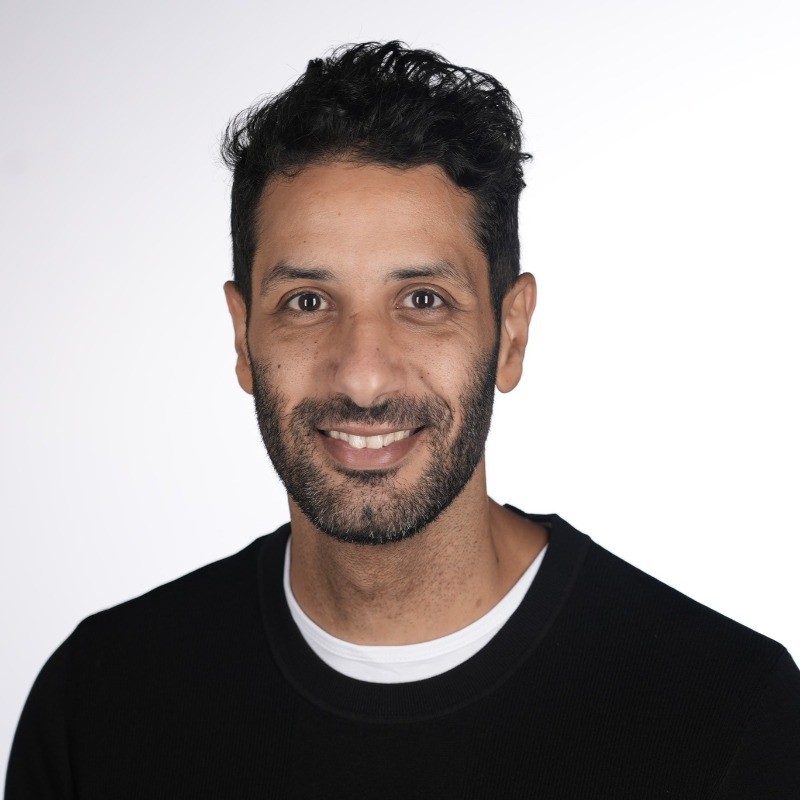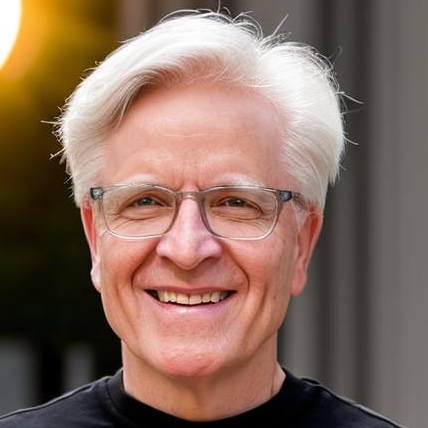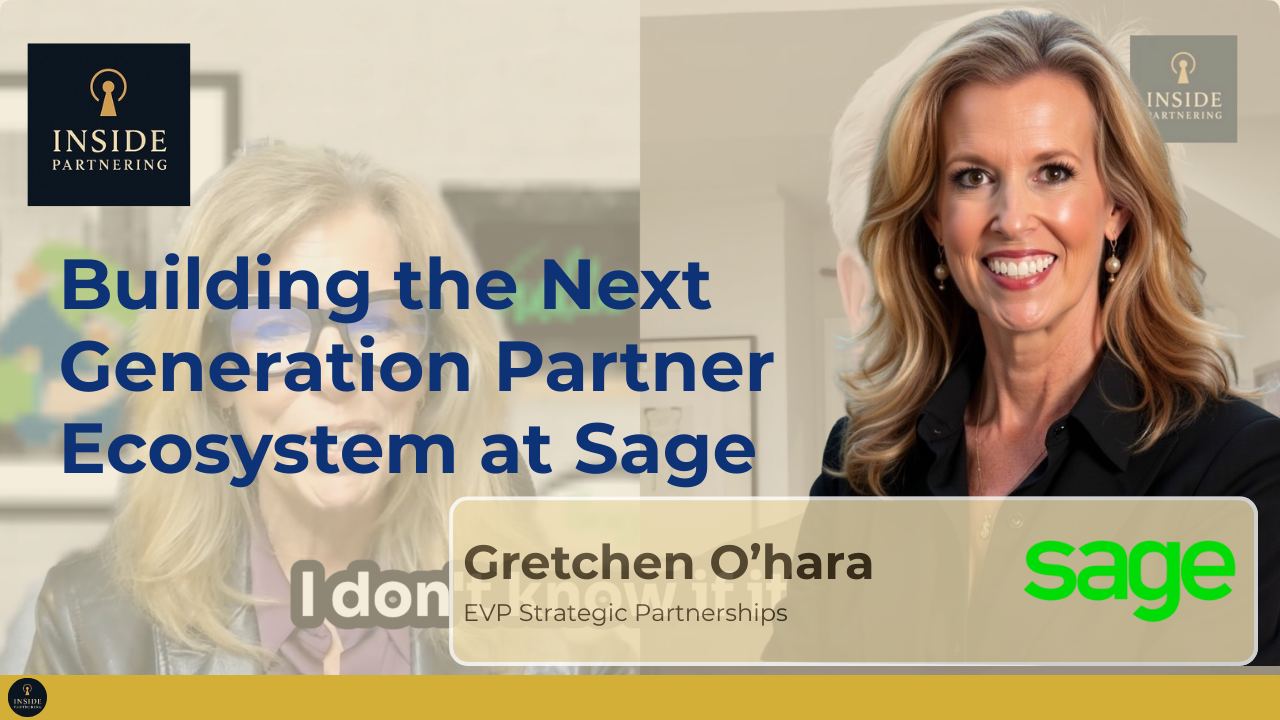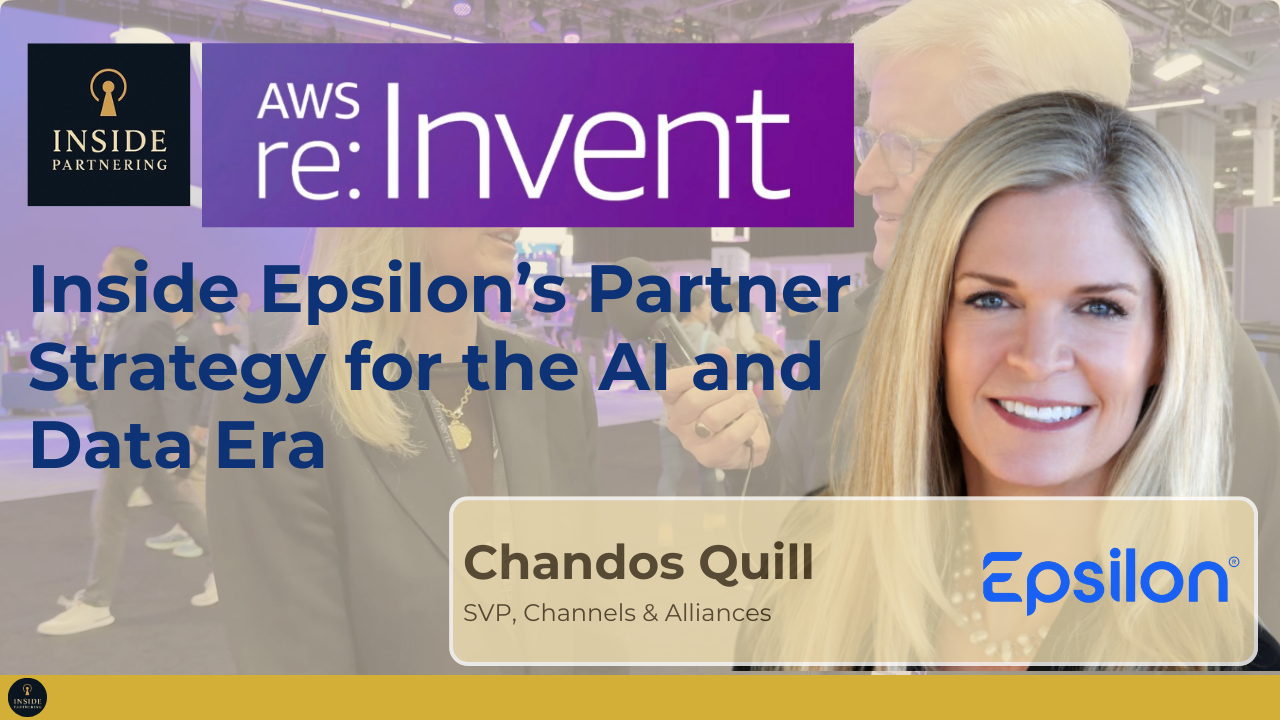Episode Overview
“If you want to test new markets without breaking the bank—partner.”
I had the chance to catch up with Basem Emera, EVP of Global Partnerships & Growth Operations at KAST, live at Catalyst 2023 in Denver, and the conversation was packed with energy, insights—and jet lag (Basem flew in from Sydney!).
Basem transitioned from his role as SVP of Partnerships at Go1—where partnerships powered massive revenue growth—to now KAST, a crypto stablecoin startup based in Sydney. And yes, partnerships are still front and center.
In his words: “Partnerships are the most cost-effective way to test and scale in new markets.”
Basem broke down his approach to partnerships in a way that’s both strategic and refreshingly honest:
- Early on at Go1, partnerships were all about top-line growth
- As the company scaled, the focus shifted to efficiency and sustainability
- You have to understand your partner’s role in the sales cycle—lead gen vs. influence vs. co-sell—and align incentives accordingly
- Don’t scale too soon—nail it with a few key partners, then expand with confidence
He also made a compelling case for partner leaders stepping into broader commercial roles: “Partner leaders are mini-CEOs. We think about sales, enablement, product, and growth holistically.”
At KAST, he’s already laying the foundation for partner-led growth.
Huge thanks to Basem for sharing his journey—from scaling a high-growth SaaS company through partnerships to now building the next one from the ground up. If you’re a partner leader thinking about your next step, this one’s worth a listen.
🎧 Catch the full conversation on the Inside Partnerships podcast.
Podcast
Guest

Basem Emera
Partnerships and Growth @ KAST | Building the world’s first global stablecoin platform
Episode Transcript
Chip Rodgers 0:00
Yeah, all right. Here we are. It's what is it? Tuesday? I'm losing track of the days this Tuesday. Tuesday, we're here catalyst, Chip Rodgers, Chief partner officer, and we are this time. We're right in the middle of the exhibition floor. Very cool, which is nice. I got people kind of walking around. I see Chris
Basem Emera 0:21
wearing headphones. So there's keynotes, but it's very
Chip Rodgers 0:23
quiet. Yeah, it's very cool. Silent, silent, silence
Basem Emera 0:27
disco. That's it. Later on, it'll be a silent disco.
Chip Rodgers 0:31
So I am so excited to to be here with Basim Amira Basham is bas you and I met in Sydney earlier in the year? You, you're, you've been just really doing fantastic work week. At the time we met, you were senior VP of partnerships that go one, correct, yep, for about five years, I think, and 50, but it was five and go one has just been on a tear. And I'm sure a lot having to do with working with partners and but you've now, you've gone, you're, you're, you're going with a real startup co founder,
Basem Emera 1:07
Yeah, crazy enough to try and do it again and scale another company. So moved on from go one, actually, just a couple of weeks ago. Yeah, I still follow them very, very closely. It's a very successful story, also from a partnership perspective. You know, to be powering the revenue of the company for so long is a really good story. And, yeah, doing a broader leadership role at a company called tacklet, where an end to end operating system for mental healthcare providers, I think the way that mental healthcare is delivered to patients today, all the way from selecting your practitioner to the delivery of care, requires a bit of an uplift, I would say. So yeah, taking on a co founder status and Chief Commercial Officer at a company called tackle in Australia, which is very exciting to be able to move from partnerships, which is broad and narrow at the same time to something a smaller company, but a much larger role. So I'm excited,
Chip Rodgers 1:56
and still I'm sure, especially in healthcare, partners are going to be central to how your whole go to market? Absolutely,
Basem Emera 2:03
I think it's a different lens, right? Because now I'm thinking about, well, I've, you know, built and scaled a partner program at go one, which was successful. But, you know, this is a startup now, so I'm thinking about go to market. You know, we're, we're self funded, and therefore we don't have the auction of just throwing money everywhere. So what is the most efficient way to enter new markets and partnerships? Is the one thing that screams at me is a really low, cost effective way to test different markets. So yeah, definitely be hiring a partner manager in the US pretty soon to do a bit of groundwork for me and kick things off. But very excited.
Chip Rodgers 2:31
Well, that's great. So why don't we start there? You know, I think, you know, you've, you're, you've been very passionate about and it was great in, in was it in? It was in sit. It was in Melbourne. Yeah, in Melbourne, yeah. We, you, you know, talked were, you know, talking with the kind of, with the with the group, and just talking about partnerships, and how, how critical partnerships are to to growth, and you can grow, grow at scale and at lower cost. And so let's talk a little bit about it. What are your thoughts there?
Basem Emera 3:04
Yeah. I mean, I think if you get it right, it could be very, very attractive for your organization. It can also be quite dilutive, right if you incentivize partners the wrong way, or pay them too much, or whatever it might be. So you really have to think about where you're at in your organization's journey, and where your partner program is that very, very early on at go one, it was just about revenue, and therefore it was instrumental to our ability to scale our partners. We basically plugged in all of the digital learning content from around the world and partnered with all of these software vendors who acted as this top of funnel machine for us, which was really powerful for our sales reps who are ramping so that's a really, really powerful story. But you have to then think about, on the flip side to that, what does the two year journey look like? What does the three year journey look like? Because if you get it wrong, it can be a quite dilutive and what I mean by that is, you know, you have $100 come in the door if you're paying your partner, then paying your partner sales rep, and then paying an SDR, then paying an AE. It can be it can be diluted. So when a new in the modern world now, where the CFOs are, you know, demanding efficiency and demanding your program to clearly articulate how they drive value for the business, I think it's really important to be focused on, you know, bottom line metrics as
Chip Rodgers 4:12
well. Yeah. So how do you do that? How do you balance? It's a Yeah, well, any, any tricks you want to Well, I think knowing your
Basem Emera 4:19
business, I think knowing your business really well, knowing your partner business really well. And the one piece of advice that I always give emerging partner leaders is really, really articulate to your board and to your executive team the purpose of what your partner does in your sales cycle. If they are a lead generator, great, if they are an influencer and help accelerate deal cycle, great, but be able to articulate that and then measure that and then measure that really well, because if you can measure that well, then you can start to think about, well, how much is that worth to me? And if you can do that well, and you can prove that story, well, then on the back of that, you get funding, and you get partner marketing resources, and you get what you want. But if you if your partner program is opaque and you can't demonstrate how it adds value to your organization, I think you're in
Chip Rodgers 4:58
trouble. Yeah, yeah. And I. Yeah, and the different touch points that you just talked about there, there are different value associated with with them. So if you pay too much for for something that's of lower value, then you're going to just break the bank.
Basem Emera 5:10
Absolutely. I mean, it's a balancing act, right? I mean, talking about metrics, but fundamentally, at its heart partnerships is a relationship driven business, right? So you can't forget that you are dealing with another organization who you want them to help you, and you want to help them. And therefore forging relationships is equally as important. So the thing I love about partnerships is that you need to be a mini CEO of your business. You need to know how to manage relationships well. You need to know your P and L. You need to be strong at sales enablement, because you doing that. You need to know a little bit about partner marketing. So, yeah, it's a great field, and it's great to be here seeing the partner playbook just keep, you know, growing and being enhanced by the by the great guys that are putting on the conference. So, really, really
Chip Rodgers 5:49
cool. This really is amazing, just the the energy here. I mean, I just, I love, you know, walking around and, you know, every, everybody that you see is like, oh, you know, these are all our friends, right? I mean, it's
Basem Emera 6:01
absolutely, yeah. I mean, a few years ago, it was, I was joking with a colleague of mine. It was very lonely. You wouldn't you'd be very, very hard pressed to find someone to talk to about, you know, the theory of partnerships, and to be at a conference where there's 600 or 700 people here, this this week, is just awesome. So, yeah, doing you know what I can to share my story, and hopefully it's valuable to the broader community and and hopefully learn a lot over the next couple of days.
Chip Rodgers 6:25
Absolutely, absolutely so. So Basim at at go one, you know, very successful partner program helped grow the, you know, it was part of the growth story for for the for go one, what were the seek many, you know, sort of few things that you would want to share that were really instrumental in in especially in that, in that stage of, you know, growth Well, I think
Basem Emera 6:50
you know, as in having a view of what you want your partner to do in testing that really well. So what was really successful for us early on is that, you know, we had a very, very strong focus on very small select number of partners. And what that enabled us to do is it enabled us to seek feedback, to build the playbook. You know, we are probably 70% CO sale partnerships, so therefore your focus is the organization, sales rep and getting mindshare with them. So if you try and do that scale too early, I think you can really, really struggle. But if you focus on one organization, make them the champion. Make the sales reps your champions, and essentially they're your stakeholders. And what we did is we focused really hard on partner enablement, and that was the thing that really helped us scale. Once we got two or three partners working well, well, then we were able to replicate that in new markets and new verticals. We started speaking to the SIS, and it just grew from there. But it's at its core has always been positioning our product in another organization sales cycle, and making sure we don't lose focus of that. Yeah,
Chip Rodgers 7:49
that's fantastic. I love the sort of crawl, walk, run, right? I mean, just get it really tested out with, you know, two or three partners at the most, and and then build from there. Because then, I think then both the partner and you, you experience it, and you have, you have learnings from that, and then the sales team understands, Oh, these are like that, you know, like they understood, they, you know, they've already, you know, it's, they've had the experience already,
Basem Emera 8:14
exactly, absolutely, yeah. I mean, it also say the program has to morph and has to evolve throughout your time. And we're early stage startup when I first joined, and therefore revenue was a sole focus. Then it was growth, then it was efficiency. So you just need to be able to understand your organization's priorities and make sure that your partner program always fits into those priorities. Very, very important that you sort of take a step back and think about, well, how is my program adding value? How can we improve? Are we in a build phase efficiency, phase, what phase are we in? And continuously ask yourself those questions. I think is really important.
Chip Rodgers 8:45
I love also that in this new role you're taking on a broader scope with Chief, Chief Commercial Officer. And you know, first of all, I love seeing that you know, from from partner folks, you know people that have run partner organizations, that it's really central to the revenue story, and then that, you know, you're able to, now, you know, leverage that into a full revenue revenue role. How do you think about that? And what was the, what were the conversations like at tackle it? You know, the leadership, the the your co founders, when you were starting to tell that story and that it made sense for that role for you.
Basem Emera 9:23
Yeah. I mean, I was very lucky that I was introduced to, you know, the CEO and founder, Chris Griffiths, a few weeks ago, by someone who worked at go one and was on the board who knew me quite closely. So I think that person was able to articulate the story of how instrumental partnerships was to go one to Chris. And therefore Chris and I got together and we talk. But I think at its core is, you know, leading any go to market channel, whether you're a CMO, whether you're a chief partner officer, whether you're, you know, SDR, lead within all of those segments, you're still asking yourself the same questions, which is, you know, how does my you know, my channel function within the broader scope of the organization? And therefore this role is basically. Partnerships, managing pay now, doing the marketing, sales enablement, all that sort of stuff, but just on a grander scale, on a bigger scale. So I think you know, anyone that's in partnerships, I think it is a really good grounding for a broader revenue leadership role, if you can articulate the story as to how powerful your program was to your organization. So I'll say to people out there that it is a really good stepping stone. And if I can be helpful to anyone out there, please reach out.
Chip Rodgers 10:24
That's fantastic. Basim, thank you so much for taking a few minutes and sharing, sharing your story, and for making the trip you know, across the Pacific to be here and in Denver. And great to see you again.
Basem Emera 10:36
Yeah, you too. I'll be fading by about one o'clock with the jet lag, but so far so good. Thanks a lot. Cheap. Okay.
Chip Rodgers 10:40
Basim, thank you and thank you all for joining and we'll see you later today. Thanks everybody. You.

Chip Rodgers
🚀 CMO | Chief Partner Officer | B2B SaaS Growth & GTM Leader | Ecosystem Strategy | Demand Gen | Podcast Host 🎙


.png)

